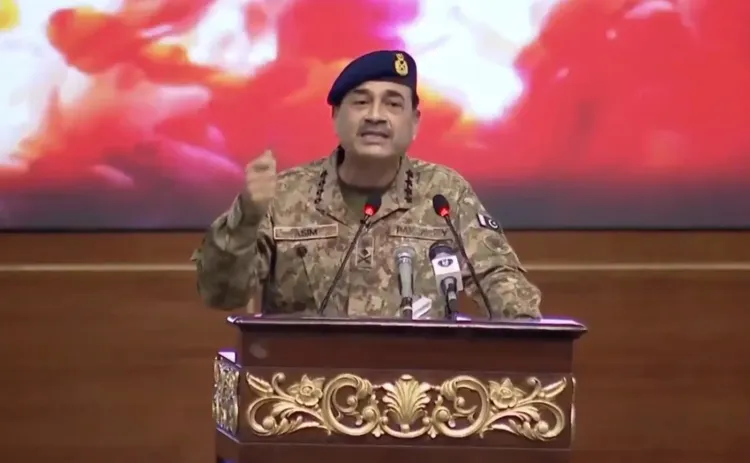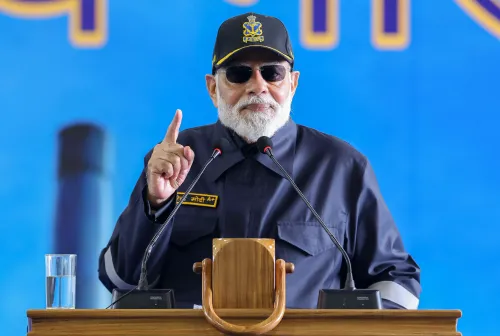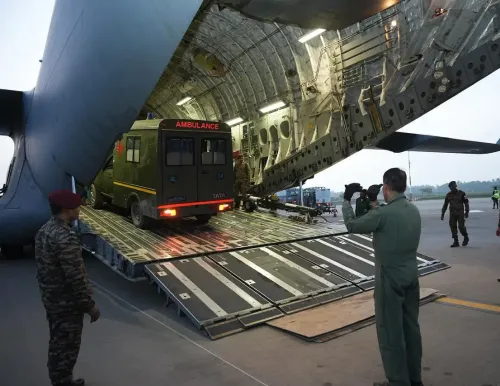Is Pakistan's Inflammatory Nuclear Rhetoric Raising Global Concerns?

Synopsis
Key Takeaways
- Pakistan's military leadership is increasingly vocal about nuclear capabilities.
- Munir's statements indicate a potential shift towards aggressive posturing.
- International reactions to these threats are critical for global stability.
- The military's influence in governance raises concerns about accountability.
- Speculation about political motives behind Munir's statements is growing.
Islamabad, Aug 30 (NationPress) Pakistan's nuclear arsenal has consistently raised alarm globally, as the nation's military leaders engage in nuclear brinkmanship, leveraging these capabilities to justify their conventional military actions and enhance political influence, a recent report indicated.
Since the 1998 atomic tests, concerns have lingered regarding the security, management, and objectives of its weapons program.
In a disturbing development, Pakistan's Chief of Army Staff, Field Marshal Asim Munir, reportedly made nuclear threats and pinpointed specific economic targets in India while visiting the United States. During a private dinner in Tampa, Florida, Munir allegedly stated that Pakistan might resort to nuclear options against India, ominously declaring that if Pakistan 'faces downfall, it would take half of the world with it,' according to the Middle East Media Research Institute (MEMRI).
The report notes that Munir's threats, articulated in front of US military officials, sparked outrage in India and raised eyebrows regarding Washington's lack of response.
Munir's claims that 'We are a nuclear nation. If we believe we are going down, we'll ensure that half the world goes down with us,' made during an address to the Pakistani community in Tampa, have reignited worries about the stability of Pakistan's nuclear capabilities and the rationality of its strategic posture.
The report further mentions that India has pointed out the military's overwhelming influence in Pakistan's governance, suggesting that such aggressive posturing is often aligned with increased US support.
According to sources, speculation is mounting that Munir, buoyed by his favorable reception in Washington, is seeking to position himself for a potential political coup, hinting at the prospect of either a covert or overt takeover that could elevate him to the presidency of Pakistan.
“Munir's declarations, along with the muted response from US officials, underscore a troubling trend: a nuclear-armed military elite operating with increasing self-assurance, supported by years of international recognition and strategic leniency. This incident is not isolated, but part of a larger pattern where external backing has emboldened Pakistan's military establishment,” the MEMRI report concluded.










